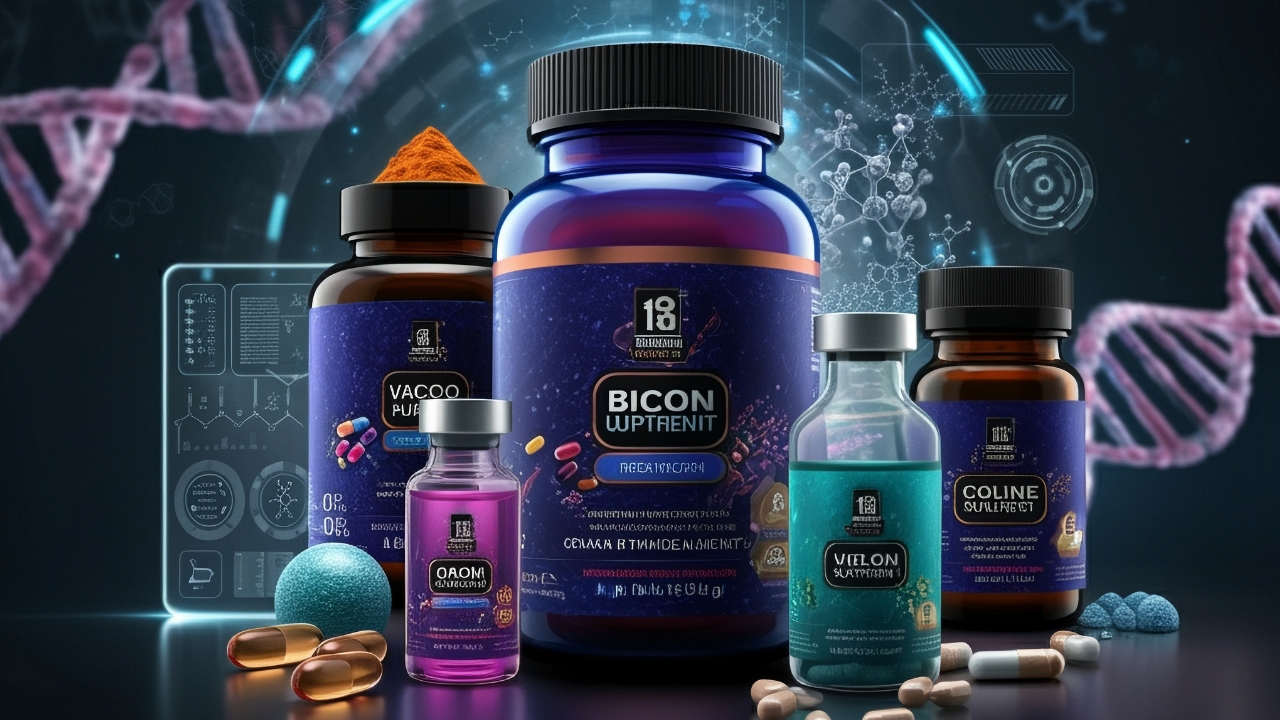
Sustainability in Nutraceuticals: The Impact of Ethical Sourcing and Green Practices
Consumers are demanding ethically sourced nutraceuticals: products that promote health and wellness without harming growers or the environment. As such, the nutraceutical industry has faced increasing pressure to adopt sustainable practices. Companies that prioritize sustainability— through ethical sourcing, green production, and advanced technologies—stand out in this competitive and evolving market.
What Are Nutraceuticals?
Nutraceuticals are products derived from food sources that deliver additional health benefits beyond basic nutrition. Examples include products (e.g., dietary supplements, functional foods, and beverages) that enhance physical and cognitive performance, protect metabolic health, or improve overall well-being.
Nutraceuticals powered by biotechnology: The Next Frontier
Nutraceuticals powered by biotechnology represent a new frontier in sustainable innovation. Companies develop these advanced products using cutting-edge methods like plant cell cultivation and precision fermentation. These approaches minimize environmental impact while ensuring high-quality bioactive ingredients. With reduced carbon footprints, improved ingredient consistency, and exceptional purity, nutraceuticals powered by biotechnology pave the way for a more sustainable future.
Examples of bioscience nutraceuticals include:
- Solar Foods Solein®: This protein-rich ingredient is an alternative to traditional protein sources; it can be produced using fermentation and incorporated in dietary supplements, foods, and beverages.
- Geltor Collume®: This plant-based collagen, created through fermentation, offers a sustainable alternative to animal-derived collagen for nutraceuticals and cosmetics.
- Kaneka Ubiquinol®: This CoQ10 (a molecule that occurs naturally in humans) product is made with yeast fermentation and can improve heart health and physical performance.
Key Areas of Sustainability in Nutraceuticals
-
Ethical Sourcing of Raw Materials
The nutraceutical market has historically relied on plants harvested through traditional farming methods. However, overharvesting and unethical labor practices have raised significant concerns. Companies like Gaia Herbs and MegaFood prioritize ethical botanical sourcing while supporting local farming communities. Ayana Bio’s plant cell cultivation technology further addresses these issues by producing health-beneficial botanical bioactives without relying on wildcraft harvesting or traditional agriculture, thereby preserving biodiversity and building sustainable supply chains.
-
Green Production Technologies
Innovative production methods like plant cell cultivation and precision fermentation are transforming how nutraceutical ingredients are made. By cultivating plant cells in controlled environments, companies such as Ayana Bio can reduce water usage, greenhouse gas emissions, and land dependency. Precision fermentation offers another sustainable solution, using simple and defined inputs to produce complex single bioactives.
-
Eco-friendly Packaging
Sustainable packaging is a cornerstone of green practices. Nutraceutical brands like HerbaLand Naturals and Garden of Life have transitioned to compostable or fully recyclable materials to minimize plastic waste. Others experiment with reusable containers and plant-based alternatives to further align with eco-conscious consumer values.
-
Transparent Supply Chains
Consumer demand for manufacturing and ingredient transparency is driving companies to adopt blockchain technology to track sourcing, manufacturing, and distribution. Brands that provide visibility into their supply chains foster trust and loyalty among consumers.
-
Comprehensive ESG Plans
Ambitious environmental, social, and governance (ESG) strategies are setting new industry benchmarks. Companies like Herbalife and Glanbia have reduced carbon emissions and launched initiatives to support community health. These strategies enhance environmental impact and improve brand reputation.
How Sustainability Impacts Consumer Choices
Sustainability isn’t just a buzzword—it’s becoming a deciding factor for consumers choosing health products. According to a Simon-Kucher 2024 study, 64% of respondents ranked environmental sustainability among their top three purchasing considerations after price. For the nutraceutical industry, this means most consumers actively choose products from companies that minimize environmental impact, ensure ethical practices, and maintain transparency throughout their supply chain.
Today’s consumers increasingly align their purchasing decisions with their values. Products that emphasize sustainability, ethical sourcing, and health benefits consistently outperform traditional options. Brands that prioritize sustainable practices not only meet consumer expectations but also gain a competitive edge by resonating with eco-conscious values.
Sustainability is no longer a “nice-to-have” but a “must-have” and key differentiator in the competitive nutraceutical market.
- Trust and Transparency: Brands that are open about their sourcing and environmental practices foster customer loyalty.
- Market Differentiation: Sustainability credentials attract both individual consumers and B2B partners who value green practices.
Ayana Bio: A Sustainability Innovator
Ayana Bio leads the nutraceutical industry in sustainability, using plant cell cultivation to produce high-quality botanical bioactives like Echinacea-p PCA and Lemon Balm PCA. This technology has a lower carbon footprint than traditional agriculture and reduces reliance on arable land. Beyond sustainability, plant cell cultivation also ensures consistent and contaminant-free ingredients.
As the nutraceutical industry evolves, Ayana Bio’s innovative solutions redefine sustainability, proving that businesses can thrive while prioritizing the planet.
Sustainability is no longer optional in the nutraceutical world—it’s essential. Companies can meet consumer demands while safeguarding the planet by adopting ethical sourcing practices that include green technologies like plant cell cultivation and embracing transparency. Industry leaders like Ayana Bio demonstrate that sustainability and success can go hand in hand.
 BACK
BACK